TikTok CEO Shou Chew tells users to ‘make your voices heard,’ contact senators as House bill gains steam
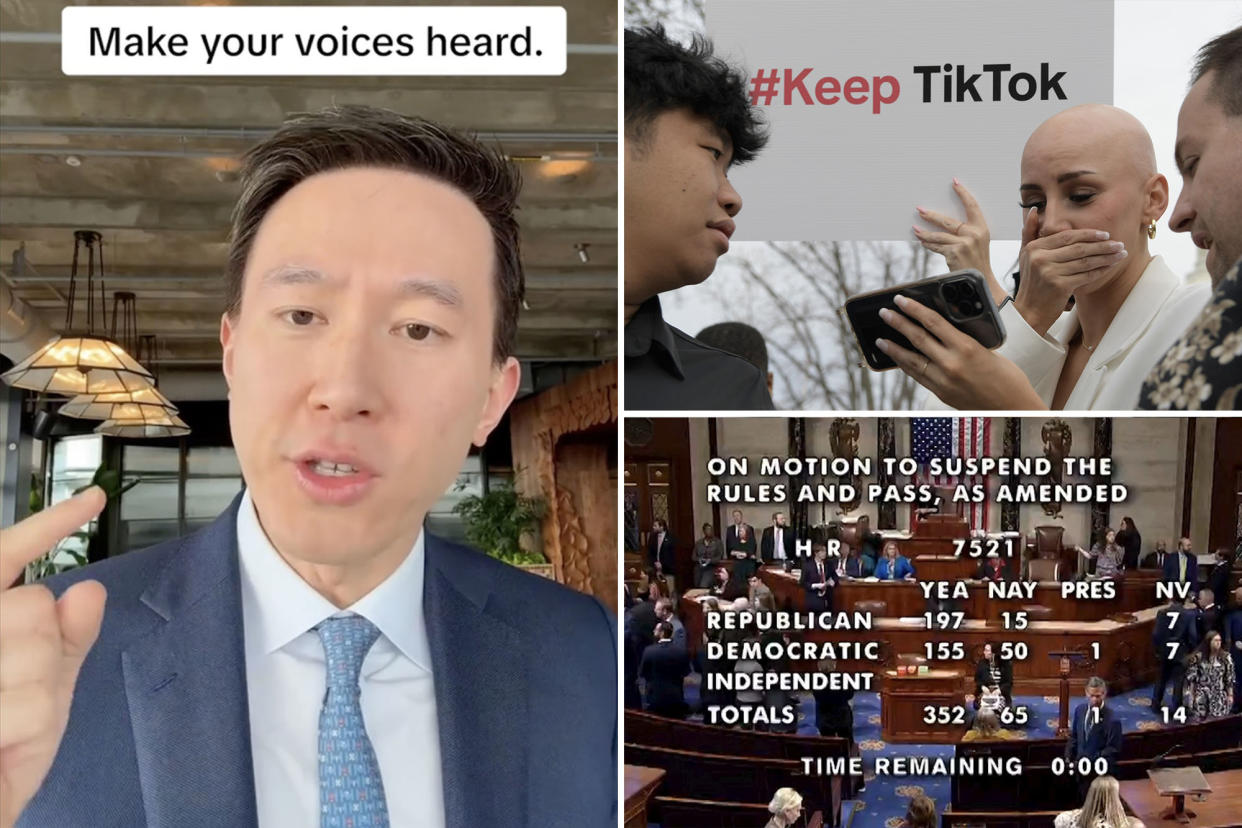
- Oops!Something went wrong.Please try again later.
A defiant TikTok CEO Shou Chew urged Americans to “make your voices heard” to oppose a ban of the China-owned app – effectively thumbing his nose at House lawmakers who overwhelmingly passed a bill requiring its parent firm ByteDance to divest.
Chew doubled down on his company’s aggressive pressure campaign – even after TikTok reportedly enraged House lawmakers by sending a push notification pressuring users to call their local representatives to protest the legislation ahead of the vote. TikTok appears poised to utilize the same tactic against US senators.
“We believe we can overcome this together,” Chew said late Wednesday. “I encourage you to keep sharing your stories. Share them with your friends, share them with your family, share them with your senators. Protect your constitutional rights. Make your voices heard. Love you all.”
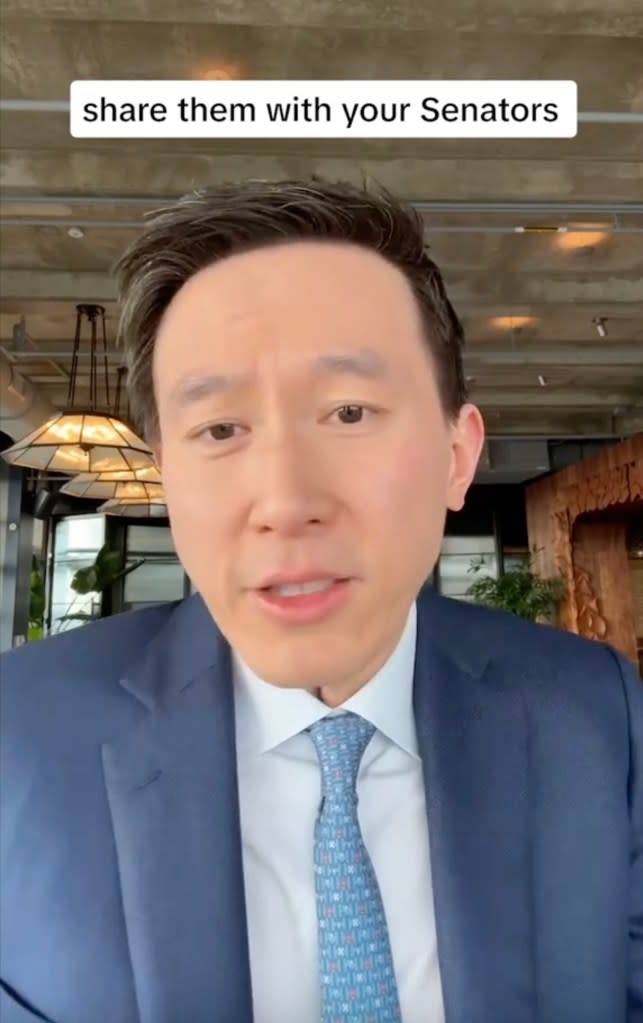
In the short video, Chew called the result of Wednesday’s House’s vote “disappointing” and decried what he described as “a lot of misinformation” about the legislative push. He also signaled TikTok would be ‘exercising our legal rights” as the bill advances through Congress.
The Post has reached out to TikTok for further comment.
The House voted 352-65 in favor of the Protecting Americans from Foreign Adversary Controlled Applications Act, easily clearing a two-thirds majority required for passage. As The Post reported, Senate Majority Leader Chuck Schumer (D-NY) is under major pressure to hold a vote on the bill.
Our CEO Shou Chew's response to the TikTok ban bill: pic.twitter.com/7AnDYOLD96
— TikTok Policy (@TikTokPolicy) March 13, 2024
On the eve of the vote, Chew and the rest of TikTok’s leadership took the controversial step of enlisting users to lobby on its behalf. Multiple reports detailed how lawmakers were irate as their office phones rang off the hook with outreach from angry TikTokers.
“I guess if you’ve got a bajillion dollars, you can come up with some crazy public affairs strategies,” a senior GOP aide told Axios last week. “But it’s backfiring as members are livid about all the calls and misinformation.”
After the bill passed, lead sponsor Rep. Mike Gallagher (R-Wis.) of the House China select committee was among the lawmakers who said TikTok’s no-holds-barred approach had backfired.
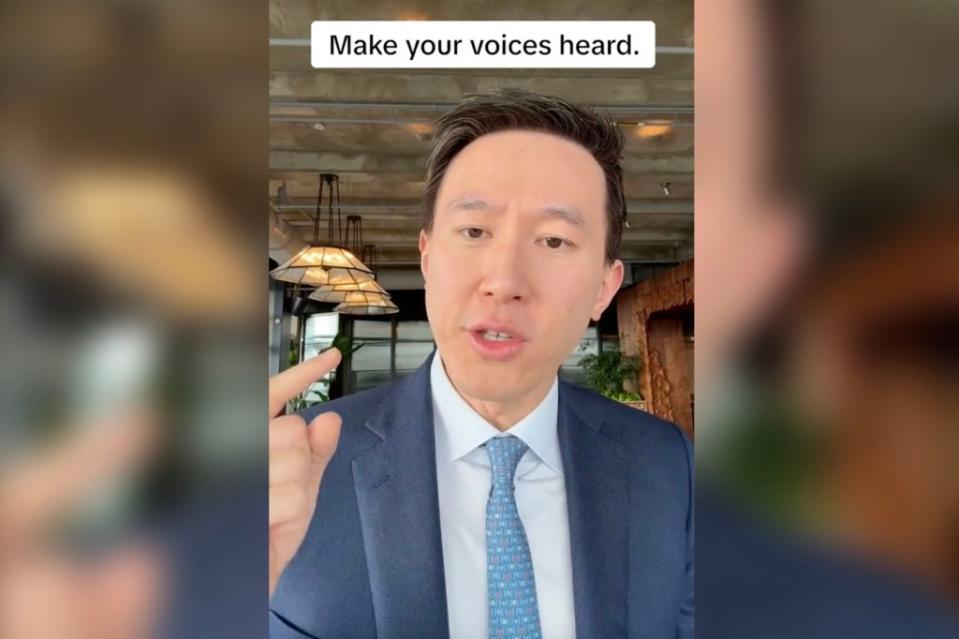
The barrage of phone calls “provided members a preview of how the platform could be weaponized to inject disinformation into our system,” Gallagher said.
TikTok has argued that the bill – which gives TikTok’s China-based parent ByteDance six months to divest its stake – is a de facto ban. The company believes the 180-day window is too short to realistically achieve a sale, even if it were inclined to sell.
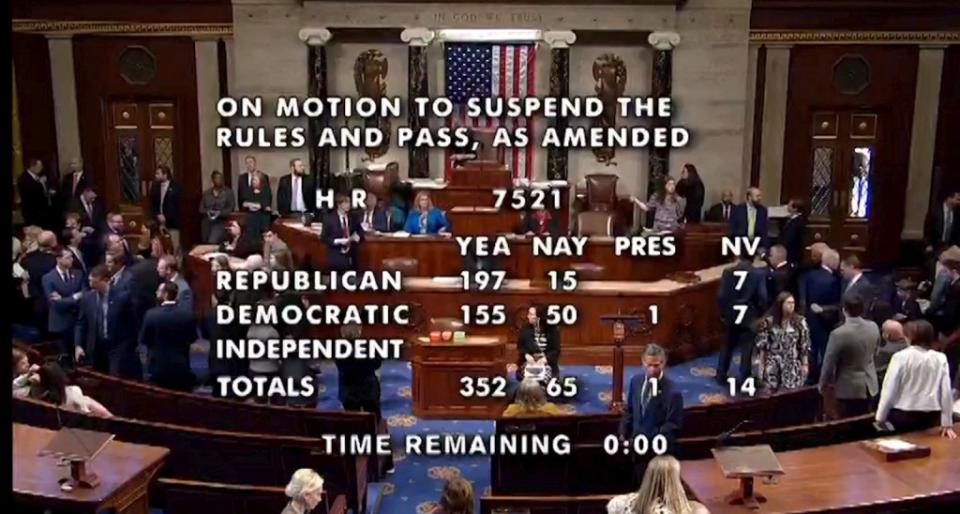
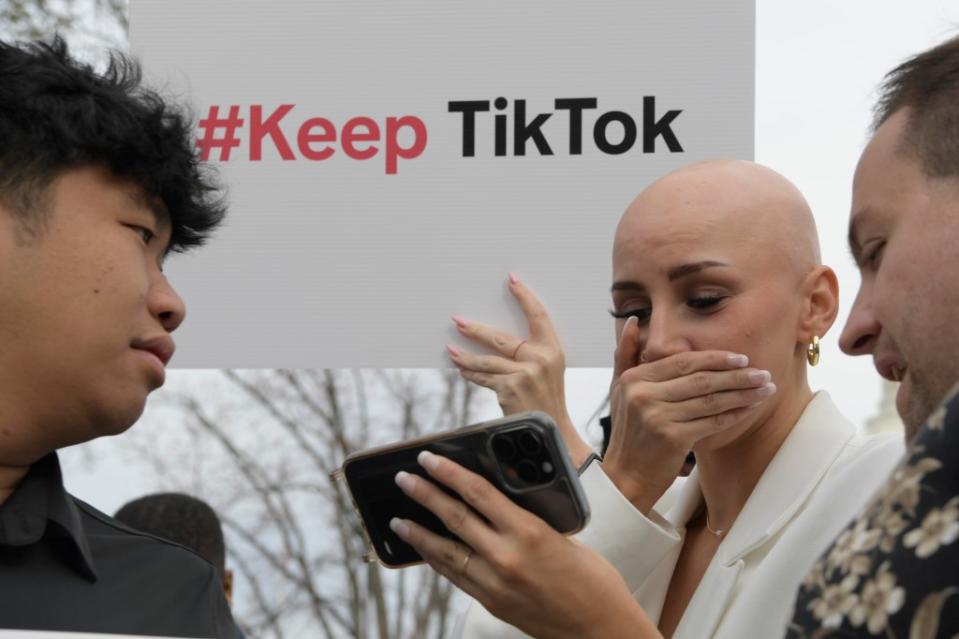
“This process was secret and the bill was jammed through for one reason: it’s a ban,” TikTok said in a statement. “We are hopeful that the Senate will consider the facts, listen to their constituents, and realize the impact on the economy, 7 million small businesses, and the 170 million Americans who use our service.”
On Thursday, former Treasury Secretary Steven Mnuchin said he was putting together a group of investors to explore a potential acquisition of TikTok.

